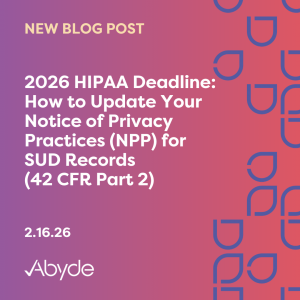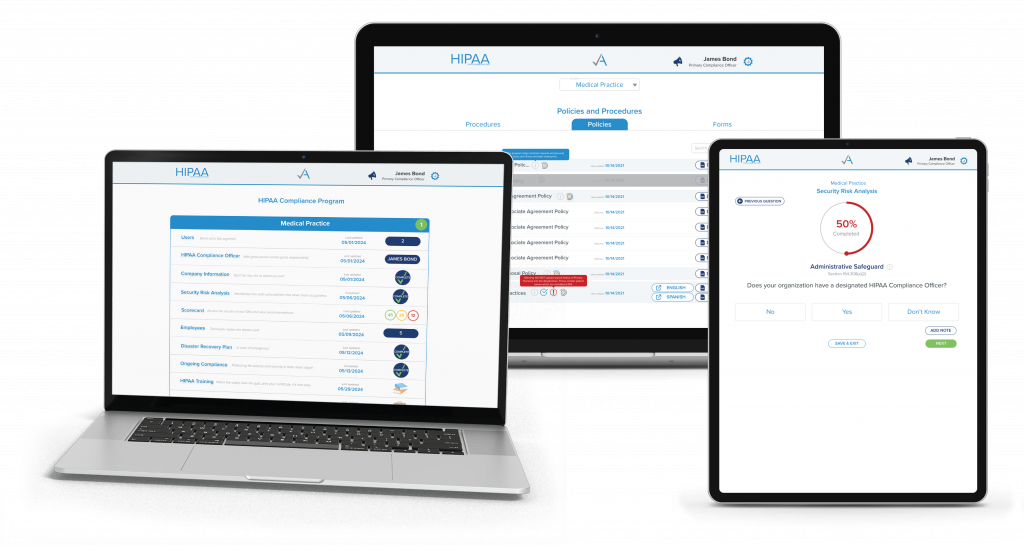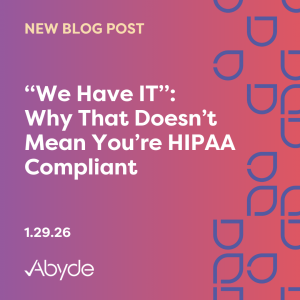
2026 HIPAA Deadline: How to Update Your Notice of Privacy Practices (NPP) for SUD Records (42 CFR Part 2)
February 16, 2026 The latest HIPAA change is the latest updates to the Notice of Privacy Practices (NPP). As of February 16, 2026, the newest version of the NPP must include further information about how Substance Use Disorder (SUD) Protected Health Information (PHI) is handled and secured. While this was initially ruled under the Biden administration in 2024, the updated content has seen significant changes, including the removal of proposed legislation that would treat reproductive healthcare PHI differently. However, while some states still have additional requirements for handling reproductive care PHI, those requirements were struck down at the federal level by a court ruling in 2025. Now that the deadline is here, it’s essential to understand what these changes actually mean for your practice. What’s Actually Changing in the Document? The Final Rule requires practices to update this document for patients (posted on the website and provided in-person) by February 16, 2026. Your practice must also review whether your state has additional legislation regarding reproductive healthcare PHI. Expanded Scope for SUD Information: SUD records must now be included in the NPP for all Covered Entities, regardless of whether the practice focuses specifically on SUD treatment. Standard Disclosure Language: The notice must explicitly state how the practice discloses SUD records for Treatment, Payment, and Healthcare Operations (TPO). Legal Proceeding Protections: The NPP must state that SUD records cannot be disclosed in legal proceedings without specific written patient consent or a formal court order. Single consent for TPO: The rule does allow patients to sign one consent for all future uses/disclosures of TPO. Previously, SUD records were discussed in a separate document for patients to review. Fundraising Opt-Outs: If your practice uses SUD records for fundraising communications, the NPP must clearly provide patients with the opportunity to opt out. For example, if a rehabilitation center is seeking to raise money for a new facility, it cannot reach out to former patients who have clearly opted out. Redisclosure Warning: The notice must highlight that once PHI (including SUD records) is shared with an outside party, it may be subject to redisclosure by the recipient. In other words, once it’s shared, it’s tough to control how it is shared again by third parties. Universal Accessibility: To remain compliant, practices must ensure the NPP is accessible to all patients, which includes providing translated copies. State-Specific Requirements: Depending on your state, additional protections for reproductive health PHI may still be in place. Where do I start? First, ensure your Notice of Privacy Practices (NPP) is already specific to your practice. Your final notice must be specific, include your office address, and provide clear contact information for your Compliance or Privacy Officer. To remain compliant, this notice must also be prominently displayed on your website so patients can easily access and understand their rights. Your NPP should now include a section that addresses these SUD records directly. The federal government provides model language similar to this: When applicable, we may use or disclose 42 CFR Part 2 substance use disorder records for treatment, payment, and health care operations as permitted by law. Part 2 records will not be used or disclosed in legal or administrative proceedings against you without your specific written consent or a court order. Your NPP should now include a section that mentions fundraising as well. The federal government provides model language similar to this: If we were to use or disclose substance use disorder records protected by 42 CFR Part 2 in connection with fundraising, you have the right to opt out of receiving fundraising communications in advance, before any such communications are sent. Simplify Compliance Updating your NPP can feel like just another complicated task on an already full plate. For practices where you’re wearing many hats, finding the resources for a legal deep-dive is tough. The simplest way to handle the February 16, 2026, deadline is to lean on experts. Abyde has already done the heavy lifting, automating the necessary HIPAA and SUD record updates so you can focus on what you do best: take care of patients. Reach out to our team of experts to learn more about HIPAA updates affecting your practice. Disclaimer: This post is for informational purposes only and does not constitute legal advice. Health care privacy laws are subject to frequent change and vary by state. Consult with a qualified health care attorney or compliance officer to ensure your Notice of Privacy Practices meets all current federal and state requirements.





